SW-IFL Team Google Calendar
SW-IFL Website
SW-IFL SharePoint Page Newsletter Sign Up
EM SW-IFL
Unsubscribe from SW-IFL Updates
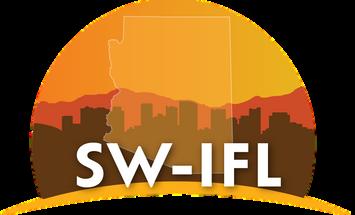

SW-IFL Team Google Calendar
SW-IFL Website
SW-IFL SharePoint Page Newsletter Sign Up
EM SW-IFL
Unsubscribe from SW-IFL Updates


*If you’d like a physical copy of this newsletter, please contact Shannon Zweig
2025 Summer IOP Activities 2025 PAMS Report to DOE 2025 SW-IFL All Hands Meeting
Aug 6: PAMS report templates and lists due
Aug 8: Modeling Team Meeting
Aug 13: Observations Team Meeting
Aug 14: Leadership Team Meeting Resilient Solutions Team Meeting
Sep 5: RSVP deadline for 2025 SW-IFL All Hands Meeting
Sep 11: Leadership Team Meeting Resilient Solutions Team Meeting
Sep 25: SW-IFL 2025 All Hands Meeting in Tucson, AZ
Oct 8: Submissions for SW-IFL Newsletter due
Greetings SW-IFL team and friends!
While the summer is a time when residents of Arizona slow down or head to cooler areas of the country and the world, the SW-IFL team is hard at work. We are in the middle of the summer intensive observation period, hosting HeatMappers and Discovery fellows, and planning for the SW-IFL All Hands Meeting that will occur this September. Our efforts to gather more data, work up past data, and publish new data continue

In addition to reading about some of the advancements that occurred over the last months, this newsletter includes a special update from the SW-IFL evaluation team Evaluation of the SW-IFL project provides key feedback on how our engagement process is proceeding so that any needed changes may be implemented by the leadership team
We invite you to read the brief update on SW-IFL activities, and engage with us as we continue to co-develop resilient solutions to address extreme heat and its associated environmental challenges
Sincerely,
Dr Jean Andino SW-IFL Deputy Director
Each year SW-IFL submits a detailed report to the DOE via the PAMS reporting system This report is reviewed by the DOE and is required for continued project funding Templates were sent out to team leads and are due back on August 6, 2025 to be complied into the final report.


Quarterly the four DOE IFLs conduct a 90-minute webinar that incorporates multiple presenters from the IFL’s on various topics The objective is to facilitate technical exchanges and collaborations between the DOE’s UIFL teams. These webinars are open to all and will be recorded for those unable to attend.
On June 11, 2025 Ph.D. students from Penn State University with the Baltimore Social-Environmental Collaborative UIFL (BSEC), Jason Horne and Eliott Foust, presented a seminar on High Resolution Urban Atmospheric Modeling. If you missed this session, you can find the recording HERE.
We’re excite to share the winners of the SW-IFL Interdisciplinary Design Challenge You can find their work HERE

ADDRESSING EXTREME HEAT AND ASSOCIATED ENVIRONMENTAL AND SOCIETAL STRESSORS THROUGH RESILIENT SOUTIONS & NEXTGENERATION PREDICTIVE TOOLS
This Challenge provides an opportunity for students from the University of Arizona, Arizona State University, and Northern Arizona University to develop innovative and resilient design proposals for transit stop across the Arizona urban corridor. It focused on enhancing the functionality, aesthetics, and user experience of Arizona transit stops, with an emphasis on heat resilience, improving accessibility, and integrating innovative technologies and naturebased solutions. Students leveraged scientific data and findings, generated by SW-IFL researchers, in their design proposals. They worked with practitioners from architecture, landscape architecture, and engineering firms across Arizona.
David Sailor (ASU) and Eli Martin (ASU) host a “See Yourself in Infrared” activity at ASU’s Open Door event in Tempe Photo credit: Ariana Pup, ASU SGSUP
Our winners were (left to right): Rababe Saadoui, Ph D Candidate at ASU; Joseph Karanaja, Ph.D. Candidate at ASU, and Linus Friedm e at UofA.
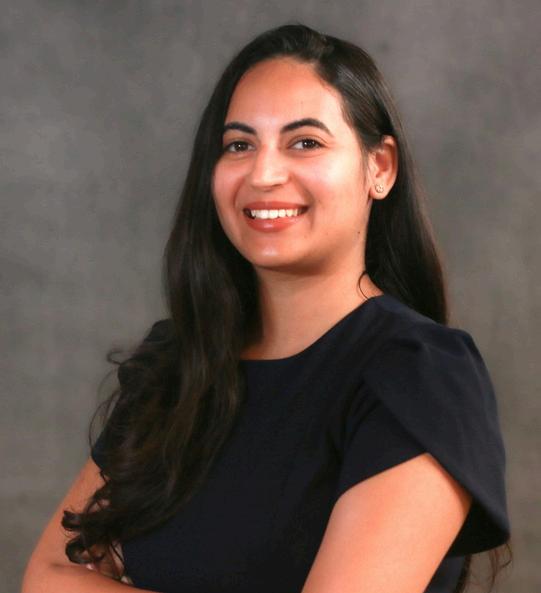
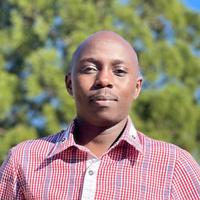
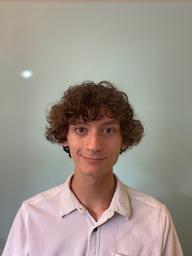
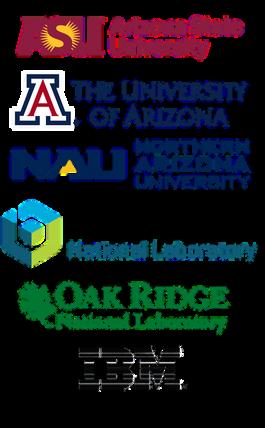

Ladd Keith, UA
Patricia Solis, ASU

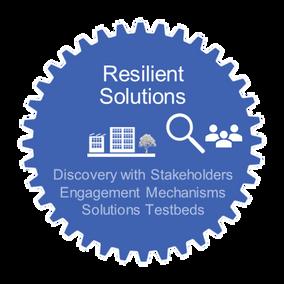
PhD student Shaylynn Trego was awarded a Philanthropic Educational Organization (PEO) Scholar Award for the 2025-2026 academic year in recognition of her impactful work on heat governance She was one of 100 PhD students selected from 776 nominees from the US and Canada
Ladd Keith was named a University of Arizona Distinguished Scholar. Read more.
Led by Mark Kear (UofA) and Elise Otto (UofA)
During April and May, temperature data from summer 2024 was analyzed and 'Report-backs' with research participants who live in manufactured housing were completed. During these report-backs, study participants received graphs of the temperature data collected inside and outside their homes, as well as a list of weatherization, transportation, and other resources. Researchers listened to any reflections or input participants had about the study or the upcoming summer
Collaborative Evaluation of the Urban Integrated Field Laboratories Transdisciplinary Team Science
Led by Alison Meadow (UofA)
Pre-Survey: Transdisciplinary and Team Science Practices
Team members from the four U-IFLs participated in a presurvey, which explored perceptions of team science, engaged research, and transdisciplinary research approaches in U-IFL research. Summaries of each team’s aggregate responses will be sent to the Cross-IFL Evaluation Team Leads shortly.
Professional Learning Session: Cross U-IFL session: Transdisciplinary Approaches for Moving Research into Action
On May 6, twenty-seven participants from all four U-IFLs participated in a discussion of why transdisciplinary research approaches (research that includes a range of academic disciplinary expertise along with the expertise of practitioners and community members) are effective for moving research into action Click here for more information
Mobility Discovery Survey
Led by Kristi Currans (UofA)
The Mobility Discover survey was deployed across Arizona, reaching over 1200 survey responses Survey responses will ultimately be used to better understand how perceptions of heat influence travel choices and identify latent or unmet demand for different activities and access to services during times of high or extreme heat.
Oracle Road Testbed
Led by Kristi Currans (UofA)
Weather Station Installation: City of Tucson and ASU reached an agreement to install a weather station near the southern stretch of Oracle Road.
Ladd Keith, UA
Patricia Solis, ASU
Vacant Lot Project
Led by Saeideh Sobhaninia (ASU)

Worked with City of Mesa officials to identify potential vacant lots for transformation to green spaces
Held community engagement workshop in Mesa to understand community desires and ideas for parks in Mesa
Quality Sensors
Led by Chris Lim (UofA)
PurpleAir sensors were installed in different locations in Sahuarita/Corona de Tucson due to residents’ concerns about potential impacts of a nearby copper mine. Additionally, more monitors were installed in Santa Cruz County.
Airsensorinstalledatresidence
credit: Chris Lim (UofA)

HeatMapper Research
Home Thermal Security Research (Led by UofA, Mark Kear & Elise Otto)
In June, Heatmapper Yoni Goodman (UofA) processed survey and interview data and analyzed data that was collected in 2024. His final project will examine the relationship between thermal practices, economic (in)security, debt, and housing conditions.
Tucson MaRTy Cart Data Colletion (Led by UofA, Kristi Currans)
In June, Heatmappers Paul George-Blazevich and Sofia Dracopoulos completed eight days of data collection with ASU's MaRTy Cart Data collection occurred along a planned complete streets route (15th Ave), three intersections and numerous bus stops, at a manufactured housing location (collaboration with Home Thermal Security researchers), and on the UofA campus This was in collaboration with ASU (Jennifer Vanos, Peter Price, Ariane Middel) Additionally, Peter Price collected data at outdoor recreation areas on weekends

PaulGeorge-Blazevich&Sofia Dracopouloscollectingdata withMaRTyCart Photo credit: UofA

Ladd Keith, UA
Patricia Solis, ASU

City of Tucson and Pima County - Mobile Home and Manufactured Housing (HR) Task Force
UofA Home Thermal Researchers Mark Kear and Elise Otto are participating in a Task Force to identify the greatest issues facing manufactured housing residents and assess policy and community pathways
for addressing those vulnerabilities, including streamlining access to weatherization and utilities assistance, utility fraud, hot weather evictions. Additionally, the Task Force addresses how park residents, managers, and owners can help residents who are vulnerable to heat.
Arizona Governor Katie Hobb’s Workplace Heat Safety Task Force

Ladd Keith was appointed to the Workplace Heat Safety Task Force. The task force is responsible for drafting and recommending heat guidelines for employers by the end of the year. Task Force members include industry leaders, worker representatives, and occupational safety and health experts. Read more.
Planning Discovery (Ladd Keith, UofA and Sara Meerow, ASU)
The Planning Discovery Team is completing analysis and writing a publication on local-level heat action plans across the world, and will begin analysis on nation-level heat action plans next
Home Thermal Security - Manufactured Housing (Mark Kear and Elise Otto, UofA)
Interviews will be conducted with park owners and managers who are concerned about heat risk in manufactured housing. Manufactured housing park owners, managers, or lenders who are interested in doing an anonymous interview are encouraged to reach out. Community meetings will be held in the fall to report the results of research.
Collaborative Evaluation of the Urban Integrated Field Laboratories Transdisciplinary Team Science (Alison Meadow, UofA)
Fall 2025, Professional Learning Sessions: Ethics for Engaged and Transdisciplinary Research and Engaged Research Methods
All members of U-IFL teams are welcome to attend Registration information will be sent out in early August Read more
Ladd Keith, UA
Patricia Solis, ASU
Vector and Urbanization Research (Heidi Brown, UofA)

An undergrad researcher is joining the team and completing research on urbanicity changes and coincident changes in mosquito populations The student researcher will use remotely sensed imagery and specific case studies where significant (de)urbanization occurred
Interdisciplinary Research Network on Environmental Risks and Health in Sensitive Landscapes (ENVIRONET)
SW-IFL Team members, Heidi Brown, Ladd Keith, and Chris Lim were included on a proposed Interdisciplinary Research Network on Environmental Risks and Health in Sensitive Landscapes (ENVIRONET) lead by Dr Corpetti at Centre National de la Recherche Scientifieque in France. The IRN ENVIRONET aims to understand and mitigate the impacts of environmental changes in territories with varying levels of human influence and brings together laboratories from the University of Arizona, universities in Quebec, and several French institutions (Rennes, Nice, Lyon, Bordeaux) This IRN will build a collaborative platform to produce integrated knowledge, tools, and policy-relevant insights
Saeideh Sobhaninia (ASU) submitted paper on vacant lot transformation titled, “A planning framework for strategic transformation of vacant lots for heat resilience ”
t h t h
50 Annual Natural Hazards Research and Applications Workshop (July 13-16 , 2025)
Resilient Solutions Team members will present during the session More Information

Ladd Keith, UA
Patricia Solis, ASU

During the past three months, the Resilient Solutions team has published a paper, given four presentations and provided interviews for five articles on research activities and heat related topics
For a detailed list, please see the News tab at the SW-IFL website
Paper: Sobhaninia, Saeideh, Sara Meerow, Ladd Keith, Malini Roy, Shaylynn Trego, Melina Matos. “A comparison of plan integration for heat and flood resilience: A case study of Baltimore, Maryland ” (2025)
International Journal of Disaster Risk Reduction, 127, https://doi org/10 1016/j ijdrr 2025 105638
Panel Discussion: “Urban IDEAS Discussion Series on Land Cover Observations, Forecasting, and Planning,” presented by Malini Roy (UofA) and Saida Sobhaninia (ASU) on June 20, 2025
Presentation: “Urban heat resilience governance,” at Women Talking Group in Phoenix, Arizona presented by Sara Meerow (ASU) on April 29, 2025.
Presentation: “Unpacking emerging multi-level heat governance: The case of Arizona,” at NSF NCAR Research Symposium: Human and Geographic Dimensions of Extreme Heat and Heat Risk in Boulder, Colorado presented by Sara Meerow (ASU) on June 23-24, 2025. Presentation: “Integrating three plan evaluation approaches for coordinated heat resilience across Arizona,” at NSF NCAR Research Symposium: Human and Geographic Dimensions of Extreme Heat and Heat Risk in Boulder, Colorado presented by Ladd Keith (UofA) on June 23-24, 2025.
Dolores Tropiano, “Maximizing the benefits of green infrastructure.” ASU News, May 13, 2025 (Sara Meerow (ASU) interviewed.)
Ted Simons, “Shade Sculptures Unveiled Across Phoenix ” Arizona Horizon, PBS, June 11, 2025 (David Hondula (ASU) interviewed )
Katya Mendoza “Arizona takes lead as OSHA opens hearings on federal heat rule ” AZPM, June 17, 2025 (Ladd Keith (UofA) interviewed )
Mark Brodie. “All shade is good shade: The roles and challenges of trying to mitigate Phoenix heat with shade.” KJZZ, June 18, 2025. (David Hondula (ASU) interviewed.)
Andrea Thompson. “How to keep Your Home Cool in Extreme Heat.” Science America, June 24, 2025. (Mark Kear (UofA) interviewed.)
Enrique Vivoni, ASU
Ted Schuur, NAU
Katia Lamer, BNL

Over the next couple of months, three field projects, led by Parker King (ASU) will occur in Phoenix and Tucson neighborhoods and schools using the MaRTy biometeorological cart These projects will test the efficacy of different types of pavement coatings on various heat metrics overnight to assess urban heat impacts
We are looking for volunteers to assist in the field on select days (based on forecast, and days that are hot, clear and calm)
If you would be interested in assisting with this, please contact Parker King at plking2@asu edu



Enrique Vivoni, ASU
Ted Schuur, NAU
Katia Lamer, BNL
Published Blog
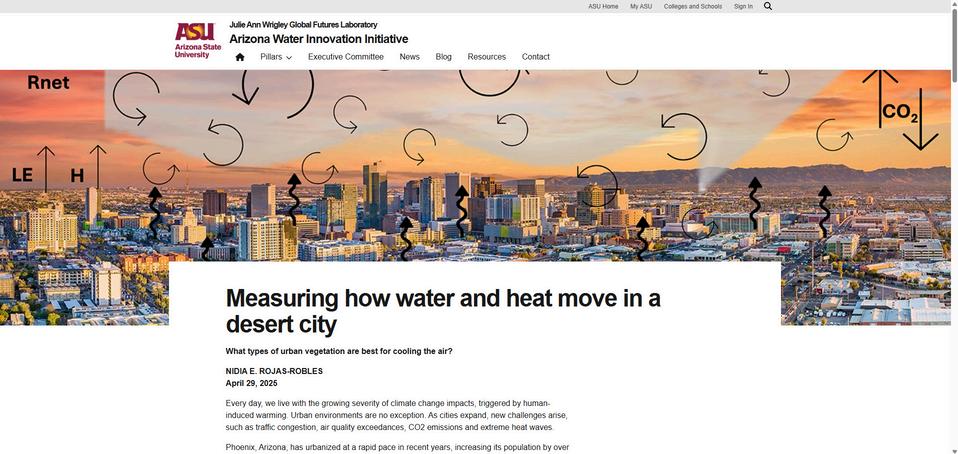


Nidia Rojas-Robles (ASU) published a blog entitled, “Measuring how water and heat move in a desert city,” with the Arizona Water Innovation Initiative. You can read her work HERE
Published Article
Deepak Amaripadath (ASU) and David Sailor (ASU) published an article titled, “Systematic review on cooling benefits of landscape strategies for urban thermal environments in the United States”, in the Sustainable Cities and Society Journal You can read it HERE

Wendy Barnard, ASU
Emerson Weinbrecht
Karen Gordon, ASU

Annual surveys for students and faculty were conducted at the end of April 2025.
Student highlights (Responses from 29 participants)
The overwhelming majority of students would recommend participating in the SW-IFL to others and were satisfied with their SW-IFL experience.
The most common responses from participants when asked about their most valuable experiences were networking, interdisciplinary collaboration, gaining knowledge and skills, conducting research, and opportunities to present.
All participants reported that they learned how the SW-IFL research helps people address real world issues
The vast majority of students reported having an excellent mentorship experience. Students recommended more opportunities for collaboration with other students.
Over 85% of students indicated quite a bit or a great deal of improvement in their skills communicating orally, writing documents, working on a research team, and managing time effectively, interpreting research results, conducting research independently, and making connections between existing literature and their own research
Over 90% of student indicated gaining skills quite a bit or a great deal in formulating research questions, analyzing research data, solving research related problems, and collecting data to answer research questions
Over 90% reported incorporating interdisciplinary perspectives and methods in their research.
Wendy Barnard, ASU
Emerson Weinbrecht
Karen Gordon, ASU
Faculty highlights (Responses from 20 faculty members)

The majority of faculty reported interacting with other SW-IFL faculty and students every day or weekly.
Faculty responses highlight interdisciplinary collaboration and research opportunities as perceived benefits of working within the SW-IFL, with 100% reporting that SW-IFL encourages collaboration. Noted examples of successful collaboration within the SW-IFL were several manuscripts, articles, and papers, as well as new proposals and research funding.
Faculty recommended facilitating additional collaboration between participants in the SW-IFL
100% of faculty agreed that their work within the SW-IFL is creating value for the community it serves, are creating new knowledge together, and are achieving more together than they could alone
Evaluation of the SW-IFL Interdisciplinary Design Challenge
Post-program surveys and interviews with students indicated: Students were satisfied with their overall experience and resources provided to complete the challenge. All students that completed the challenge would recommend participating in the Design Challenge to others. Participating students reported that they found value in the ability to work on a team, advance their work/skills, and to practice communication skills
Teacher Traverses June 2025

95% of faculty are satisfied or very satisfied with their interactions.

Tucson teachers reported high levels of satisfaction with their experience. Teachers indicated they are likely to incorporate SW-IFL information into their classrooms and guide their students to seek out information about the SW-IFL. Teachers reported that their participation increased their interest in environmental issues and extreme heat, as well as their motivation to become more involved in scientific activities
Wendy Barnard, ASU
Emerson Weinbrecht
Karen Gordon, ASU
Post-participation engagement with HeatMappers and Discovery Fellows


The evaluation team will send out a post-participation survey to HeatMapper participants at their last meeting in July 2025.
Interviews with Discovery Fellows will be held at the end of their participation with the SW-IFL in July and August 2025.
Phoenix Teacher Traverses
Same as the Tucson Teacher Traverses, Phoenix teachers will be asked to participate in a post-participation survey after their last traverse in July 2025.
Advisory Board & Community Members

Annual surveys and engagement with the SW-IFL’s advisory board group and community partners will be conducted in August 2025

August 4, 2025: PAMS report lists of participants and collaborating partners due from teams
August 6, 2025: Main PAMS report template due from teams
September 5, 2025: RSVP to 2025 SW-IFL All Hands Meeting are due
September 25-26, 2025: SW-IFL 2025 All Hands Meeting in Tucson, AZ More information coming soon.
October 8, 2025: Submissions for SW-IFL Newsletter due
Did you capture images or videos during the SW-IFL activities? If so, we’d love to have them Feel free to upload your photos and videos throughout the year, but especially of this summer’s IOP campaigns and activities using this GOOGLE PHOTO FORM
Please note, uploaded images and videos will be shared in our public facing annual report and in other various report outs for conferences and meetings through out the year.
SW-IFL Team Google calendar (Internal use only)
SW-IFL Website
SW-IFL SharePoint Page (Internal use only)
SW-IFL Newsletter Sign Up
Email SW-IFL

We hope you enjoy receiving the SW-IFL Updates If you do not wish to receive these newsletters from the SW-IFL Project, please CLICK HERE and change the subject line to “Unsubscribe”, OR email us at SW-IFL@asu.edu

ADDRESSING EXTREME HEAT AND ASSOCIATED ENVIRONMENTAL AND SOCIETAL STRESSORS THROUGH RESILIENT SOUTIONS & NEXTGENERATION PREDICTIVE TOOLS
David Sailor, ASU Jean Andino, ASU

